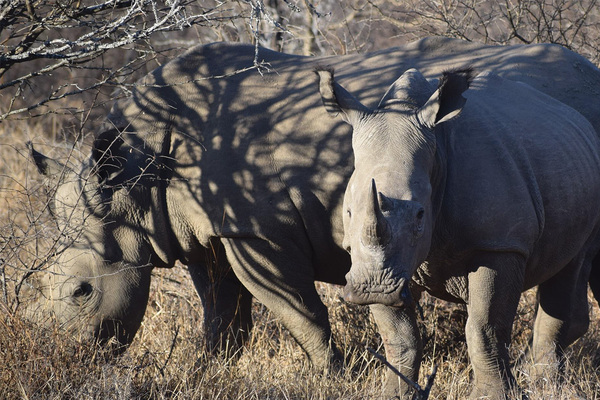Agents reap rewards of strong demand amid stiff competition – at least for now
 Gary Noakes &
Gary Noakes &  Ilaria Grasso Macola &
Ilaria Grasso Macola &  Harry Kemble &
Harry Kemble &  Sarah Dennis
Sarah DennisAfter peaks continued well into February, there’s no doubt 2024 has got off to a strong start – but could over-capacity dampen the feel-good factor? The TTG news team assess agents’ fortunes as we head into the summer season.
To quote one agent, peaks and February sales were “bloody great” – a feeling echoed throughout the industry as operators and airlines switch their focus to the summer season, one that could be the most competitive for years.
On the retail side, there is optimism about both pricing and volume among the agents TTG spoke to. Sophie Baker, managing director of Oyster Travel in Norwich, said the agency’s January commission was up by 40% and on increased margins.
“In February, we have been ahead of sales volumes compared with January,” she said. “We have added another £10,000 in commission over the past three weeks. Our average booking value in February was £4,500 – up on last year’s £3,500, as well as January’s £4,100.”
Baker highlighted one big factor – staffing. “We were very short-staffed last year,” she added. “We’re not fully staffed, but we have more consultants compared with last year. We lost a lot of enquiries last year because we just couldn’t turn them around quickly enough.”
‘Tougher fight’
Kate Harris, managing director of Inspired Travel in Hinckley, is another optimist. “The last few weeks have been bloody great,” she told TTG. “Since 2 January, it’s been amazing. This January and February have exceeded the opening two months of 2022.”
However, she added: “The majority of what I am booking is for couples and for people who won’t be worried that we’ve entered a recession. And I’m selling a lot more long-haul – it’s a much better buy. The Balearics and Europe are expensive.”
She also praised Tui’s renewed interest in independent agents. “It’s quite nice to have three mainstream tour operators to quote and sell.”
Tui has another ally in Geraldine Marshall, director of Glasgow’s Marshall Travel. “I’m selling more Tui,” she said. “They have their own Facebook page for agents pushing offers for various destinations. It feels like they’re keeping their promises to re-engage with the trade.”
She added sales were generally exceeding her expectations. “I did around £95,000 in January,” she revealed.
Operators have played their part in all this, as Linda Boyd, Stewart Travel retail director, explained. “There’s definitely been a lot of price-matching going on, more so than last year. It’s been a tougher fight this year compared with last.”
However, she was also optimistic. “Our enquiries are increasing week-on-week at the moment,” she said.
Another who saw peaks extend well into February was Darren Bien, Designer Travel’s head of sales and commercial. “The first three weeks of February were definitely up on prior years,” he said.
“January and February peaks actually felt the same, as we’re still seeing lots of demand. About 60% of what we’re booking is for summer 2024.
“I’ve been in travel 30 years, and you used to bet the first six weeks of the year would be the busiest, but we’re still seeing busy days. Customers are still looking for holidays and they’re still booking with us – they want human interaction.”
‘Similar booking curve’
Kelly Cookes, Advantage Travel Partnership chief commercial officer, described January as “a very successful month” for its agents. “The only exception to this has been the lower end of the family market which has yet to pick up and has been slower than usual,” she said.
She attributed a rise in average booking value in part due to an increase in suppliers’ costs and partly consumers trading up. “While we have seen a slowdown in February in terms of volume, we are still significantly outperforming 2023 and this is a similar booking curve to that which we saw last year.”
Cookes played down discounting: “Some suppliers will always be aggressively chasing both volume and market share during peaks,” she added.
“We will be closely monitoring the lates market as we are still seeing capacity go in. We know that certain markets haven’t booked yet, but we are also hearing that other product such as family suites with cruise already has limited availability.”
Operators are similarly bullish, but there may be trouble ahead. In a February update, Jet2holidays, which has increased capacity by 12.5%, said prices for summer 2024 were ahead of last year but with load factors up by only 1.5 percentage points, although its proportion of package customers is up 17%.
Nevertheless, in late February, the operator was discounting most packages by a flat rate of £100.
And there are signs the competition is hotting up in some places. At Birmingham, where easyJet opens a base on 18 March, Tui was heavily discounting some early summer packages to Spain and other destinations where the two will clash.
Similarly, Tui’s packages from Stansted, where Jet2 has increased its inventory, show some deep discounting, with prices that were in the £500 bracket now nearer £300.
Promising signs
In February, investment firm Hargreaves Lansdown wrote of Tui’s “positive bookings momentum”, noting it was 32% sold for summer 2024 as “a promising sign”. However, it warned: “The question is whether this can continue,” adding, “Tui was concerned about over-capacity in the wider industry before the pandemic. This is an ongoing concern in our opinion.”
Hargreaves was writing before Tui signed its deal with Ryanair, which Tui hopes will bring up to a million extra packages, mainly via its First Choice brand.
What does the Tui of the future look like?
The big question, as the summer looms, is what impact this will have in a year when Jet2 is looking to cement market leadership, and easyJet holidays is expanding its package reach.
Naturally, all operators are coy about a potential late sales surplus, preferring to concentrate on what’s been achieved. Roy Stratford, easyJet holidays’ head of commercial partnerships, said bookings “took off“ during peaks with retail backing. “We’re still very much seeing consumers prioritise a summer break, evidenced by a boost in bookings for May, June and July,” he said.
Similarly, Lynsey Jones, Balkan Holidays’ national sales manager, is upbeat. “I would say we’re 10-12% up year-on-year. We did the biggest sale we’ve ever had in the last five years – 10% off per booking. There’s a lot of feedback from agents that customers are happy to spend a little bit more.”
Further ahead, there may be a threat to short-haul operators from too many airline seats in the market.
Conversely, long-haul appears to be benefiting from more flights, meaning less of last year’s damaging price gouging.
Mark Godfrey, Premier Holidays’ commercial director, said a fall in air fares was helping bookings.
“Increased capacity is helping reduce the cost of air travel, particularly to the likes of the US where there is fierce competition, less so for the Far East,” he said. “The drops are still minimal and not in line with fares seen pre-Covid.”
He named Thailand, the US, Australia, Indonesia and Canada as best sellers, adding: “Much of the Far East is showing double-digit growth.”
Long-haul or short-haul, there seems to be no lack of demand. Moreover, if operators have got it wrong and find that selling record numbers of packages leads to big discounts, it can only mean more clients heading to agents to pick up a bargain.
Sign up for weekday travel news and analysis straight to your inbox

Gary Noakes

Ilaria Grasso Macola

Harry Kemble

Sarah Dennis
Supplier Directory
Find contacts for 260+ travel suppliers. Type name, company or destination.















